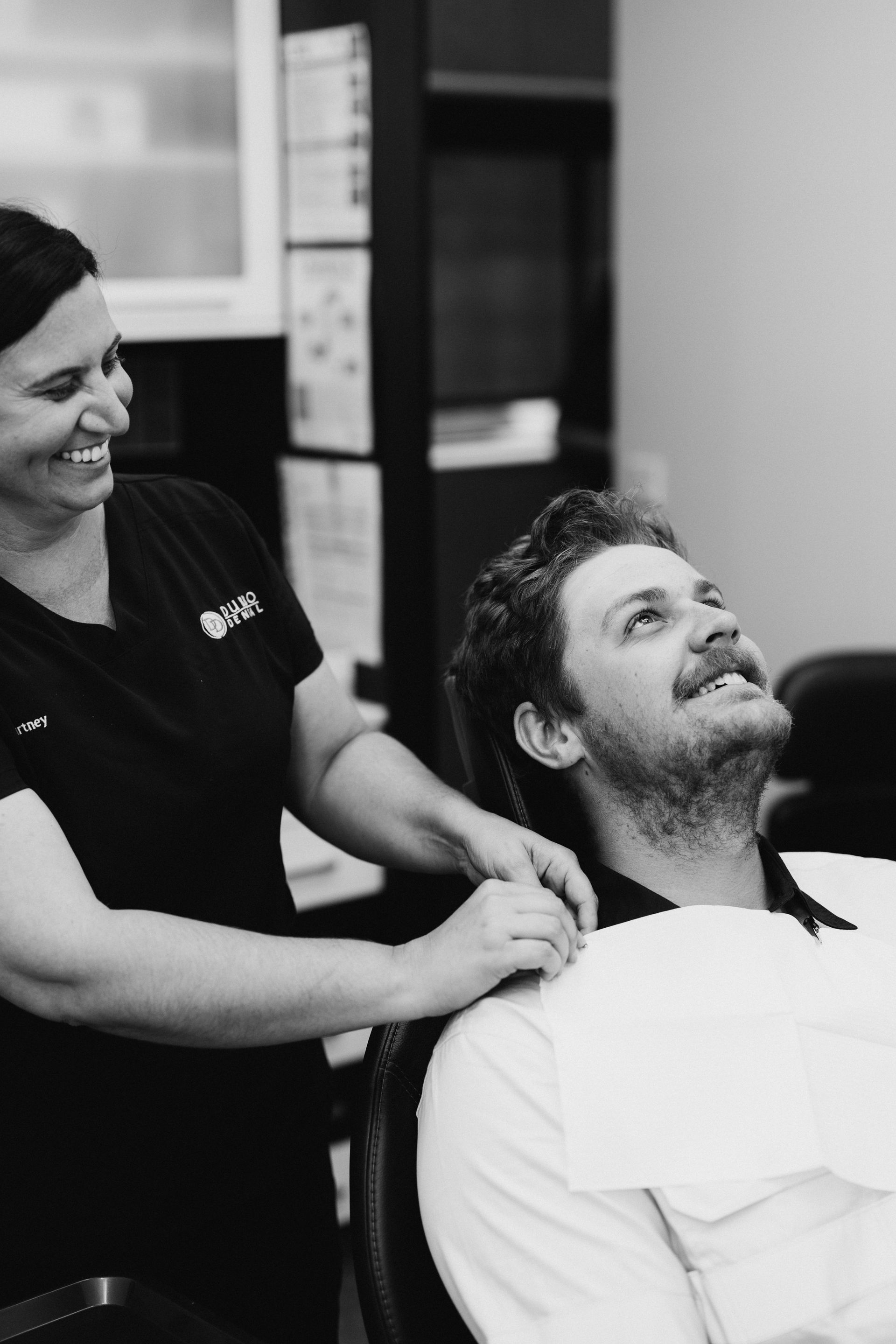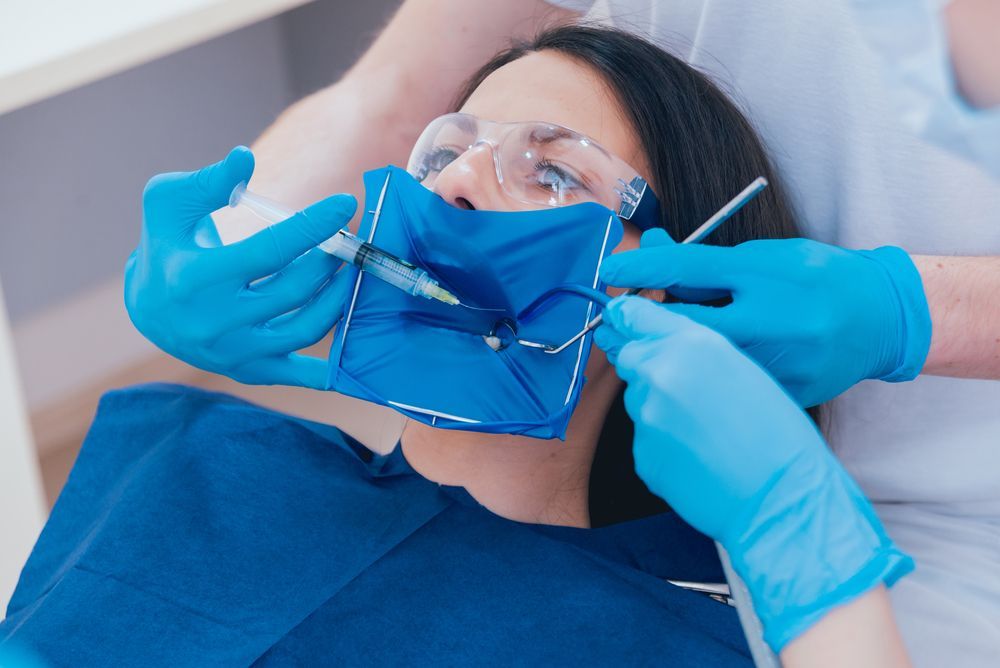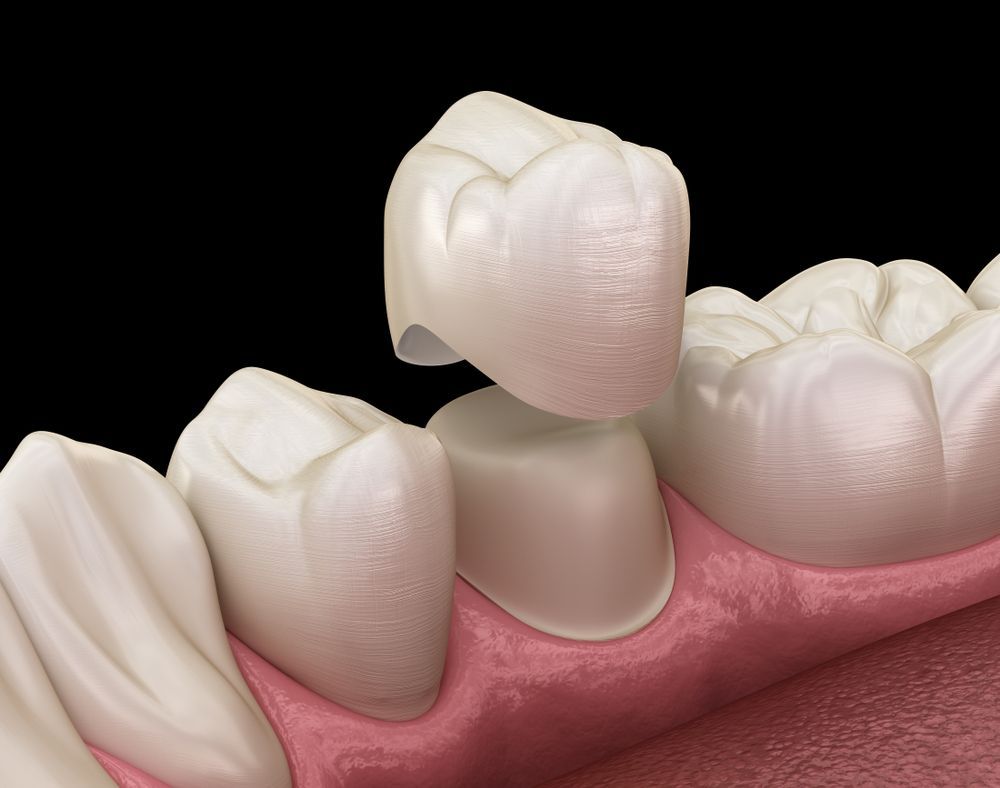Dubbo Dental
General Dentistry in Dubbo
- Locally-Owned Practice
- All Health Funds Accepted
- Child Dental Benefits Scheme
Request a Call Back
Contact Us
Thank you for contacting Dubbo Dental.
We will get back to you as soon as possible.
Please try again later.
Check-Ups to Complex Care
At Dubbo Dental, we consider general dentistry the cornerstone of long-term oral health. Our team offers comprehensive care that supports the early detection, treatment and prevention of common dental issues such as decay, gum disease and bite irregularities.
Every appointment is tailored to the individual, with time dedicated to discussing your oral health history, current concerns and any changes you may have noticed. We use clinical best practices to assess the condition of your teeth, gums and jaw, supported by modern diagnostic tools including in-house digital imaging.
Our goal is to make each visit clear, respectful and productive. We explain treatment options in straightforward language, offering practical advice without pressure. We also prioritise continuity of care — helping you stay on top of your oral health across all life stages.
Whether you’re attending for a routine check-up, a filling, or advice on preventative care, our team is here to support your decision-making every step of the way.
To schedule an appointment or speak to our team, contact us on
02 6882 0949.
Addressing the root cause
When you visit our clinic for general dentistry, we start with a thorough oral examination, checking your teeth, gums, soft tissues and jaw alignment. We use this information — along with any relevant medical history — to identify issues like decay, plaque build-up, gum inflammation or changes in your bite. In many cases, we’ll also take digital X-rays to assess areas not visible to the eye, such as between teeth, under fillings, or below the gumline. These tools allow us to detect and address problems early, before they become more complex or costly to treat.
For more involved procedures, such as crowns, bridges or wisdom tooth management, we’ll provide a clear outline of the process and work with you to schedule care at your convenience.
Our team places a strong emphasis on communication, making sure you understand your options and feel confident in your next steps. We also provide guidance on at-home care between visits to help maintain oral hygiene and reduce future risks.
If it's been a while since your last visit or you’d like a full oral health review, give us a call on
02 6882 0949 to book an appointment.
Dental x-Rays
Dental X-rays are an essential tool for diagnosing problems not visible during a standard examination, such as tooth decay between teeth, infections at the root, and bone loss. We use digital X-ray technology to minimise radiation exposure and provide clear images to support accurate treatment planning. These images help us monitor changes over time and detect early signs of dental issues, allowing for more conservative and effective interventions.
Wisdom Teeth
Wisdom teeth are the last molars to emerge, often between the late teens and early twenties. If there isn't enough space in the mouth, they may become impacted or grow at an angle, potentially causing pain, infection or damage to nearby teeth. We assess wisdom tooth development using imaging and clinical evaluation and may recommend monitoring or removal based on your individual oral health and risk factors.
Anaesthetics (Local & General)
Anaesthetics are used to manage discomfort during dental procedures. Local anaesthetic numbs a specific area and is commonly used for fillings, extractions and other routine treatments. For more complex or surgical procedures, general anaesthetic may be appropriate and is administered in a controlled clinical environment. We assess your medical history and discuss anaesthetic options before any treatment to ensure your safety and comfort.
Crowns, Bridges, & Veneers
These restorations are used to repair, protect or improve the appearance of teeth. Crowns cover and strengthen damaged or heavily filled teeth; bridges replace one or more missing teeth using adjacent teeth as support; and veneers are thin covers bonded to the front of teeth to improve shape or colour. We assess suitability based on your dental health, function and aesthetic goals, and discuss the risks, benefits and expected outcomes before proceeding.
How often should I see a dentist for a check-up?
Most people benefit from seeing a dentist every six months, although this frequency can vary depending on individual needs, medical history and lifestyle factors. People with chronic conditions like diabetes, or those prone to gum disease or decay, may require more frequent monitoring.
Regular check-ups allow for early detection of issues such as enamel wear, infection, or gum inflammation — often before symptoms become noticeable.
Are dental X-rays safe?
Dental X-rays use low-dose radiation and are considered safe for both adults and children when taken appropriately. They allow dentists to detect problems that can’t be seen during a visual exam, such as hidden decay, infections near the root, or changes in bone density.
They’re especially important for assessing the position of wisdom teeth, planning restorative work, and monitoring jaw or sinus health. Your dentist will only recommend X-rays when clinically justified and will explain the purpose before proceeding.
What happens during a dental check-up?
A typical dental check-up includes a visual examination of your teeth, gums, tongue, jaw function and overall oral tissues. Your dentist will check for signs of decay, gum recession, oral lesions, or any bite-related concerns. X-rays may be taken to assess areas that aren’t visible during a standard exam — such as between teeth or below the surface.
Your dentist will explain any findings, offer treatment options if needed, and recommend a personalised plan for ongoing care.











